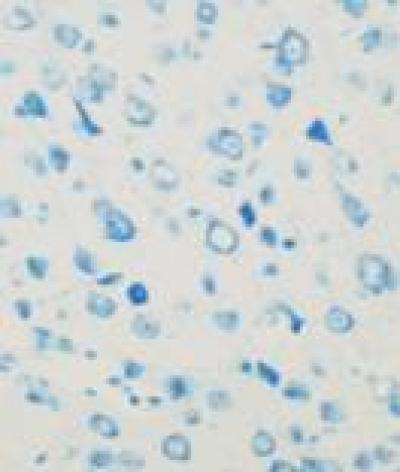Hypobaric hypoxia can cause severe brain damage and mitochondrial dysfunction, and is involved in hypoxic brain injury. Dr. Jianyu Li and colleagues from Logistics College of Chinese People's Armed Police Forces evaluated the degree of brain damage with different exposure times to hypoxia and further investigate the differential expression of cerebral mitochondrial proteins by comparative proteomic analysis, in a broader attempt to search for treatment targets of hypobaric hypoxia brain injury. Furthermore, ten protein spots were selected and identified by mass spectrometry. These ten proteins are all involved in the electron transport chain and the function of ATP synthase. These findings were published in the Neural Regeneration Research (Vol. 8, No. 31, 2013).

Following exposure to hypobaric hypoxia for six hours, a large number of neurons exhibited cell shrinkage, karyopyknosis as well as karyolysis (toluidine blue staining, × 400).
(Photo Credit: Neural Regeneration Research)
Source: Neural Regeneration Research